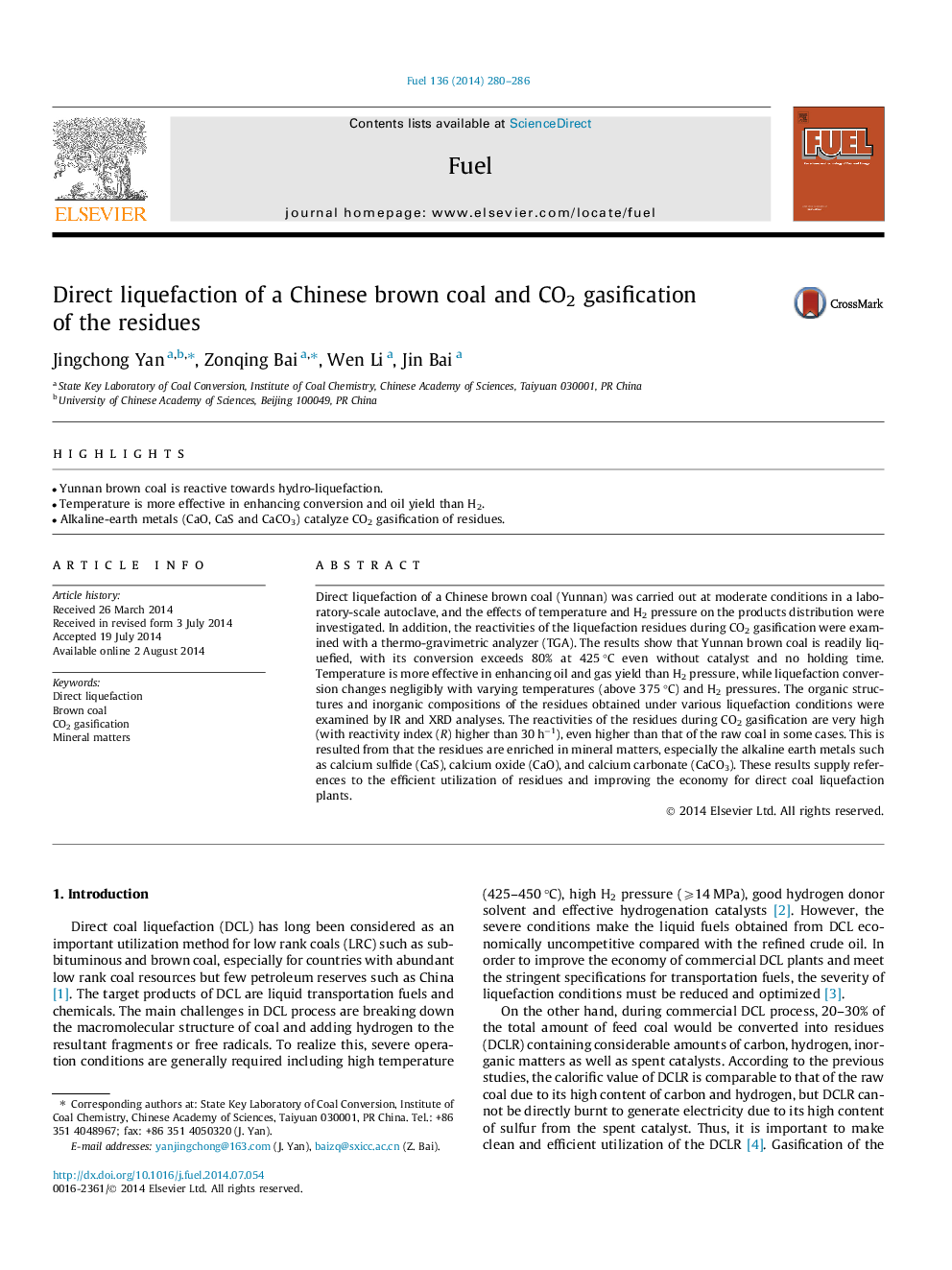| Article ID | Journal | Published Year | Pages | File Type |
|---|---|---|---|---|
| 206100 | Fuel | 2014 | 7 Pages |
•Yunnan brown coal is reactive towards hydro-liquefaction.•Temperature is more effective in enhancing conversion and oil yield than H2.•Alkaline-earth metals (CaO, CaS and CaCO3) catalyze CO2 gasification of residues.
Direct liquefaction of a Chinese brown coal (Yunnan) was carried out at moderate conditions in a laboratory-scale autoclave, and the effects of temperature and H2 pressure on the products distribution were investigated. In addition, the reactivities of the liquefaction residues during CO2 gasification were examined with a thermo-gravimetric analyzer (TGA). The results show that Yunnan brown coal is readily liquefied, with its conversion exceeds 80% at 425 °C even without catalyst and no holding time. Temperature is more effective in enhancing oil and gas yield than H2 pressure, while liquefaction conversion changes negligibly with varying temperatures (above 375 °C) and H2 pressures. The organic structures and inorganic compositions of the residues obtained under various liquefaction conditions were examined by IR and XRD analyses. The reactivities of the residues during CO2 gasification are very high (with reactivity index (R) higher than 30 h−1), even higher than that of the raw coal in some cases. This is resulted from that the residues are enriched in mineral matters, especially the alkaline earth metals such as calcium sulfide (CaS), calcium oxide (CaO), and calcium carbonate (CaCO3). These results supply references to the efficient utilization of residues and improving the economy for direct coal liquefaction plants.
